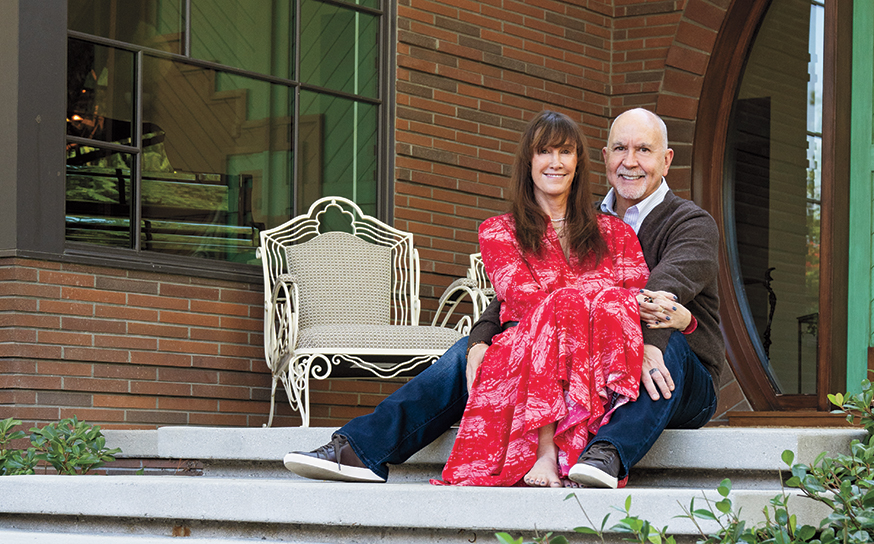
Learn How GreatBuildz Is Taking an Innovative Approach to Finding a Contractor
Matchmaking for the home.
Anyone who has ever built or renovated a home knows how hard it is to find an experienced, trustworthy contractor. That’s why Paul Dashevsky and Jon Grishpul founded GreatBuildz, a free online service (greatbuildz.com) that connects homeowners with reliable, thoroughly screened general contractors throughout LA County. The Encino-based firm connects clients with up to three contractors, selected for their specific type of project, typically within 24 hours, and stays by the client’s side from the initial call through the finished job.
VB Editor Linda Grasso sat down with the duo to discuss the vetting process and to get some tips for homeowners planning on renovating and building.
 Why did you launch GreatBuildz?
Why did you launch GreatBuildz?
PD: I spent 10 years flipping homes in LA. Working with a good contractor made the process smooth and enjoyable. Working with a bad contractor was a nightmare. So I teamed up with my nephew, Jon Grishpul, who has a background in technology and marketing, to create GreatBuildz.
JG: Most people make a contractor hiring decision based on the cost estimate and their gut feeling after just one meeting. That’s grossly insufficient to tell the good guys from the bad guys. The price tells you nothing about whether they are a quality contractor. And reading reviews isn’t totally reliable anymore. You need a thorough vetting process.
What steps should a homeowner take before even taking meetings with a contractor?
PD: Have some idea of a budget and find out what your neighbors are paying for similar projects. Create a list of the items you want included and hand it to every contractor who bids. You want to be comparing apples with apples. Finally, have some idea for the finish materials you want to use. Say you want a quartz full-slab Caesarstone countertop, instead of simply saying you want a white countertop.
Advice for finding a contractor— and any red flags?
PD: One potential red flag is if the contractor sends a salesman to meet you. This contractor will most likely not be involved in your project. You’ll need to interview and vet the person who will supervise your job. Another flag: a contractor who takes longer than a week to meet with you or respond with an estimate. That typically means that contractor is either too busy or has poor follow-up.
On your website you note that 50% of homeowners wind up dissatisfied with their contractor. Most common issues?
JG: Invariably, a homeowner’s negative experience with a contractor involves one or more of the following issues:
Increased Costs: Sometimes contractors will submit a low bid to win the job and make up the profit with change orders.
Delays: Some delay is inevitable, but some contractors will take on too many jobs simultaneously. Other contractors don’t manage their crews properly or get stretched too thin and will pull workers off one job to work on another.
Quality: The idea of a quality finished product can vary between the client and the contractor. Some contractors will notice an issue with quality and say nothing. Then at the end of the job, the client notices, but now it’s difficult to address because the job is completed.
Communication: Contractors sometimes fail to keep clients updated on the progress of the job, or they are unresponsive to calls and emails.
How can change orders be mitigated or avoided?
PD: Be realistic. Plan for changes and issues along the way and budget another 10 to 20% to prepare yourself for upticks in cost. Discuss your expectations of the change order process upfront. Tell them you expect change order requests in writing, and that you want one to two days to investigate that the cost is fair. If you determine the price unreasonable, show your research to your contractor and negotiate a better price. Finally, discuss upfront that you expect change orders to be fairly priced.
A finished job can look pretty and complete from a visual standpoint, but how can one make sure that the internal stuff—plumbing, heat, AC, electric—is all done correctly?
PD: A good contractor would never cut corners to save a buck; they put too much value on their reputation. A bad contractor doesn’t care about results and just wants to get paid and move on. The safest way to ensure your contractor performed top-notch work is to hire a home inspector to check the work before final payment to the contractor. It might cost you $250 to $500, but this person will give you a thorough assessment of the quality of the work.
So many projects drag on. Some days the workers show up; other days they don’t. thoughts?
JG: There is no way to completely avoid this because emergencies do arise, and workers aren’t always totally reliable. But you can protect against this issue. Most importantly, hire the right contractor who respects your time and the schedule they have committed to. Express your expectations upfront. At GreatBuildz, we require all our contractors to sign a 20-point Code of Conduct describing our expectations of their behavior with our customers.
Toward the end, the homeowner wants it to be over and the contractor wants his final check. Things can get sloppy…
PD: Sometimes the contractor’s impatience stems from the fact the homeowner hasn’t completed choosing the finish materials (lights, faucets, doorknobs, etc.). So choose these in a timely manner. Another issue can be the punch list—the items that the homeowner wants the contractor to repair or change when the project is complete. Bring up any quality concerns as soon as you see them and let the contractor address them immediately instead of waiting until the end.










